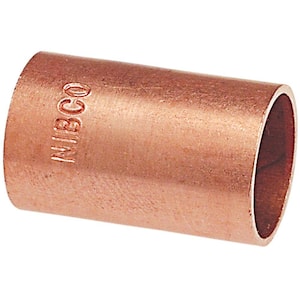Enhancing Your Kitchen with Premium Copper Products: Tips and Ideal Practices
Enhancing Your Kitchen with Premium Copper Products: Tips and Ideal Practices
Blog Article
Exploring the Diverse Applications of Copper Products in Modern Industries
Copper items have developed themselves as indispensable parts throughout a myriad of modern industries, mainly as a result of their impressive conductivity, malleability, and resistance to deterioration. From improving the efficiency of electric systems to playing a critical function in sustainable energy modern technologies, the adaptability of copper appears. Its recyclability positions it as a lasting choice in production and electronic devices. As industries increasingly prioritize advancement and sustainability, the varied applications of copper call for a closer exam, especially concerning their possible influence on future technical improvements and ecological practices.
Electrical Applications of Copper
Copper is a crucial product in the electrical sector, making up about 60% of the complete need for non-ferrous metals around the world - Copper Products. Its remarkable electric conductivity, which is nearly two times that of light weight aluminum, makes it the recommended choice for a large range of electrical applications. From wiring systems in commercial and property structures to high-voltage power transmission lines, copper guarantees efficiency and dependability in electricity shipment
Along with electrical wiring, copper is essential to the manufacturing of electric components such as motors, generators, and transformers. These elements take advantage of copper's thermal conductivity and pliability, necessary for heat dissipation and effective efficiency. Copper's resistance to rust boosts the lifespan and longevity of electric systems, making it a cost-effective remedy in the long term.
The development of renewable resource resources, such as solar and wind power, has additionally increased the demand for copper in electrical applications. As sectors transition in the direction of lasting energy remedies, copper's function becomes much more important. In general, the versatility and efficiency characteristics of copper solidify its condition as a keystone material within the electric sector, driving advancement and effectiveness throughout numerous applications.
Pipes and Piping Solutions
In modern-day pipes systems, the option of products significantly affects both functionality and longevity. Copper has become a favored alternative because of its one-of-a-kind homes, consisting of rust resistance and antimicrobial characteristics. These features ensure that copper piping remains sturdy and secure for delivering drinkable water, a critical factor to consider in household and commercial applications.
Among the crucial advantages of copper in pipes is its capacity to withstand heats and stress, making it ideal for a selection of applications, from warm water systems to heating and cooling down networks. Furthermore, copper's adaptability enables less complicated installation in intricate piping designs, lowering the risk of failings and leakages.
One more noteworthy benefit is copper's lengthy life expectancy, often going beyond half a century with proper upkeep. This durability not only minimizes replacement prices however also adds to lasting techniques by minimizing waste. Copper's recyclability lines up with modern-day ecological criteria, advertising a round economy within the pipes sector.
Copper in Renewable Power
The convenience of copper prolongs past pipes applications, playing an essential role in the renewable energy field. In solar panels, copper is used in photovoltaic or pv cells and electrical wiring, assisting in efficient power conversion and transmission.

Furthermore, as the international need for electrical lorries (EVs) increases, copper's function in battery systems and charging infrastructure ends up being much more considerable. The product's capability to perform electrical power efficiently is essential to the efficiency of EV batteries, boosting array and charging rate.
Copper's Function in Electronic devices
Electronics manufacturing relies greatly on copper's extraordinary residential properties, especially its high electric conductivity and thermal effectiveness. These attributes make copper an excellent choice for a wide variety of electronic parts, including ports, motherboard, and wiring. The steel's capacity to successfully transfer electrical signals guarantees very little energy loss, which is important in high-performance electronic tools.
Furthermore, copper's thermal conductivity plays a significant role in heat dissipation, securing sensitive elements from overheating. This is particularly essential in modern electronics, where portable designs result in increased heat generation. Copper is likewise favored for its pliability and ductility, allowing it to be quickly formed into detailed styles that fulfill the needs of advanced digital applications.
With the increase of consumer electronic devices, telecoms, and electrical automobiles, the need for copper in the electronic devices industry continues to grow. As innovations in innovation develop, copper stays essential to attaining higher performance and dependability in digital items. Its recyclability further enhances its appeal, as manufacturers seek sustainable services without jeopardizing top quality. Thus, copper stays a foundation product in the ever-expanding area of electronics.
Ingenious Utilizes in Production

One remarkable application is in additive manufacturing, where copper-based materials are employed in 3D printing processes. This permits for the development of complex geometries and light-weight elements, particularly in the aerospace and automobile markets. In addition, copper's thermal conductivity makes it an optimal selection for warmth exchangers, boosting efficiency find out here now in commercial cooling systems.
In addition, the surge of wise production has seen the incorporation of copper in IoT devices, where its conductive abilities support sophisticated picking up modern technologies. In the world of renewable resource, copper is essential in the manufacturing of photovoltaic panels and wind turbines, assisting in a lot more reliable energy conversion and circulation.
As sectors aim for sustainability and technology, copper's convenience and efficiency proceed to place it as a crucial material, internet driving advancements in manufacturing and adding to the growth of smarter, a lot more efficient products.
Conclusion
The essential function of copper in sustainable power and its crucial feature in electronics emphasize its significance in progressing lasting practices. Collectively, these applications show copper's important payment to technological progress and industrial efficiency in modern society.
From enhancing the effectiveness of electric systems to playing a crucial function in eco-friendly energy innovations, the convenience of copper is obvious. As markets significantly prioritize technology and sustainability, the diverse applications of copper call for a closer evaluation, particularly concerning their possible influence on future ecological techniques and technological innovations.
The development of eco-friendly power resources, such as solar and wind power, has even more raised the need for copper in electrical applications. On the whole, the versatility and efficiency qualities of copper strengthen its standing as a cornerstone material within the electric field, driving technology and efficiency across different applications.
The adaptability of copper expands past plumbing applications, playing a vital function in the sustainable power industry.
Report this page